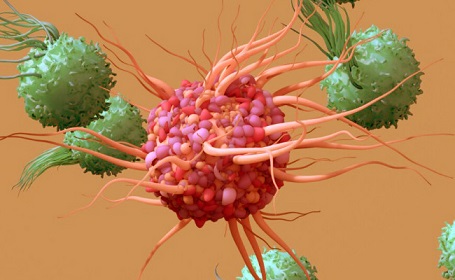Nilkhil Prasad Fact checked by:Thailand Medical News Team Sep 19, 2024 7 months, 1 week, 5 hours, 51 minutes ago
Long COVID News: Scientists from various prestigious institutions have been working diligently to understand how long COVID affects the immune system, especially focusing on SARS-CoV-2-specific CD8+ T cells. These researchers have now uncovered valuable information about how these critical immune cells behave in people suffering from long COVID, and their findings could provide a new perspective on the lingering effects of the virus.
 Long COVID study shows persistent T-cell responses over two years
Long COVID study shows persistent T-cell responses over two years
The collaborative study was conducted by researchers from the University of Melbourne, Prince of Wales Hospital in Hong Kong, and Imperial College London. It examined how T-cell and B-cell responses evolve over a span of two years after initial infection and subsequent vaccination. This
Long COVID News report will explore the significant results of this study and the implications for those affected by long COVID.
Understanding Long COVID
Long COVID, a term referring to persistent symptoms following recovery from the acute phase of COVID-19, remains a significant global health challenge. While most patients recover fully from COVID-19, a smaller but noteworthy group continues to experience symptoms such as fatigue, breathlessness, and cognitive difficulties. These symptoms may persist for weeks, months, or even years after the initial infection.
To better understand the immune response in people with long COVID, the research team focused on CD8+ T cells, a subset of immune cells that play a critical role in viral clearance. CD8+ T cells recognize and kill infected cells, helping the body fight off infections like SARS-CoV-2, the virus responsible for COVID-19. However, little was known about how these cells behave over an extended period, particularly in people who experience long COVID symptoms.
The Research Approach
In this comprehensive study, researchers tracked 31 individuals with long COVID over a span of two years, examining their immune responses following initial infection and subsequent vaccination. The participants were recruited from hospitals in Melbourne, Australia, and Hong Kong. These individuals were compared with 19 people who had recovered from COVID-19 without long COVID symptoms. The study aimed to identify how SARS-CoV-2-specific CD8+ T cells, along with CD4+ T cells and B cells, are established and maintained over time.
The researchers used specialized techniques to identify specific T-cell and B-cell responses to different viral proteins, including the spike and nucleocapsid proteins. Over the two-year period, they collected blood samples at various intervals and analyzed the immune responses of the participants. The use of advanced tetramers allowed them to isolate and track the SARS-CoV-2-specific T cells, providing valuable insight into how these cells behave in both long COVID and fully recovered individuals.
Key Findings
The study revealed several important findings regarding the behavior of SARS-CoV-2-specific T cells in peopl
e with long COVID:
-Persistent T-Cell Responses: One of the most striking findings was that people with long COVID had persistent, robust CD8+ T-cell responses even two years after infection. These T cells retained their ability to recognize and respond to the virus. This persistence of T-cell activity could help explain why some individuals continue to experience long COVID symptoms, as the immune system remains active for an extended period.
-Memory T Cells: SARS-CoV-2-specific CD8+ T cells in long COVID patients were found to maintain a central memory phenotype, a type of T cell that can quickly reactivate upon re-exposure to the virus. This memory T-cell pool is crucial for long-term protection and could help prevent reinfection. Interestingly, the proportion of memory T cells in people with long COVID remained stable even after vaccination, highlighting the durability of the immune response.
-No Bystander Activation: Another key finding was that influenza-specific CD8+ T cells remained stable over time, indicating that there was no bystander activation of immune cells unrelated to SARS-CoV-2. This means that the immune response was specific to the virus that caused the original infection, without triggering an unnecessary activation of other parts of the immune system.
-TCR Signature: The study also examined the T-cell receptor (TCR) signatures of SARS-CoV-2-specific T cells in people with long COVID. TCRs are molecules on the surface of T cells that allow them to recognize specific parts of a virus. The researchers found that these TCR signatures remained stable over time, further confirming the long-term persistence of the immune response.
What This Means for People with Long COVID
These findings provide crucial insight into the immune system's response to SARS-CoV-2 in people with long COVID. The persistent activation of CD8+ T cells, even two years after infection, could help explain why some individuals continue to experience symptoms long after recovering from the initial infection. While this immune response is generally beneficial in fighting off reinfection, it could also contribute to the lingering symptoms seen in long COVID.
More research is needed to fully understand how this prolonged immune response might affect individuals with long COVID in the long term.
Conclusions
This study provides valuable evidence that people with long COVID can maintain strong, specific immune responses for up to two years after initial infection. These T cells play a critical role in clearing the virus and preventing reinfection. The persistent nature of these T cells could offer protection but might also contribute to the ongoing symptoms seen in long COVID.
The findings from this research suggest that long COVID is a complex condition that involves prolonged immune activation. Understanding how these immune cells behave over time is essential for developing effective treatments and management strategies for those affected by long COVID.
The study findings were published in the peer-reviewed journal: Proceedings of the National Academy of Sciences (PNAS).
https://www.pnas.org/doi/10.1073/pnas.2411428121
For the latest
Long COVID News, keep on logging to Thailand Medical News.
Read Also:
https://www.thailandmedical.news/news/new-study-finds-no-link-between-mast-cells-and-long-covid-symptoms
https://www.thailandmedical.news/news/new-insights-into-orthostatic-intolerance-in-long-covid-patients
